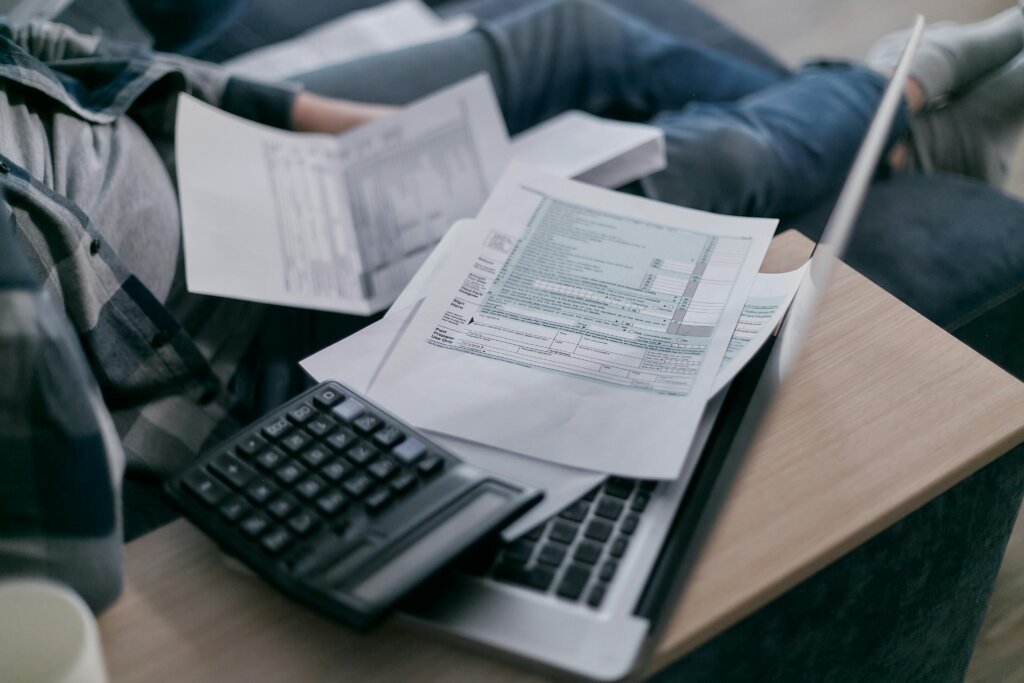Property taxes are a major consideration for homeowners and prospective buyers, as they directly impact the affordability and financial planning associated with owning real estate.
In the Austin metropolitan area, property tax rates can vary significantly by county, affecting your annual tax bill and overall cost of homeownership. These rates are determined by a combination of state laws, local government budgets, and the assessed value of properties, making it essential to understand how they differ across regions.
Whether you’re considering purchasing a home, evaluating investment opportunities, or simply planning your annual budget, knowing the property tax rates will help you make more informed financial decisions.
Let’s delve into the specific property tax rates across the different counties in Austin.
Overview of Property Taxes

Property taxes are levied by local governments on real estate and are a primary source of revenue for municipalities, counties, and school districts. These taxes are calculated based on assessment for the concerned property, determined by the county appraisal district.
The property tax rate, often expressed as a percentage of the property’s assessed value, is then applied to determine the amount owed by the property owner each year.
Several factors influence property tax rates, including:
Property Values
Higher property values typically result in higher property taxes, as the tax is a percentage of the property’s assessed market value.
Local Government Budgets
The financial needs of local governments and school districts play a key role in setting property tax rates. Areas with higher budgets for services like schools, public safety, and infrastructure may have higher tax rates.
Services Provided
The quality and quantity of services provided by local governments such as public education, emergency services, and recreational facilities can also affect property tax rates. Communities with more extensive services may require higher tax rates to fund these offerings.
Property taxes are vital for local governments and communities, as they fund essential services and infrastructure that directly impact residents’ quality of life. Schools, police and fire departments, road maintenance, and public health services all rely heavily on property tax revenue.
Understanding how these taxes are calculated and the factors influencing them can help you make informed decisions about your real estate investments.
Travis County Property Tax Rates
In Travis County, property tax rates are a combination of several levies from different taxing entities, including the county, cities, school districts, and special districts. Here’s a detailed breakdown of property tax rates in Travis County:
Travis County General Fund: This rate is applied county-wide to fund general government operations.
- Rate: 0.3744%
City of Austin: For properties within the city limits of Austin, an additional city tax is applied.
- Rate: 0.5335%
Austin Independent School District (AISD): School district taxes are a significant portion of the overall property tax bill.
- Rate: 1.1027%
Travis County Healthcare District (Central Health): This funds healthcare services in the county.
- Rate: 0.1118%
Austin Community College (ACC): Taxes for community college funding.
- Rate: 0.1048%
Special Districts: Various municipal utility districts (MUDs) and other special districts may levy additional taxes, varying by location within the county.
Comparison with the State Average
The average property tax rate in Texas is about 1.81%. Travis County’s rates, especially within the City of Austin, are higher than the state average due to the additional city and school district taxes. The higher rates reflect the extensive services and infrastructure provided in this urban area, such as public schools, healthcare facilities, and city amenities.
Williamson County Property Tax Rates
Williamson County, like Travis County, has a complex property tax structure.
Williamson County General Fund:
- Rate: 0.3775%
City Taxes:
- City of Round Rock: 0.4390%
- City of Georgetown: 0.4180%
School District Taxes:
- Round Rock ISD: 1.1336%
- Georgetown ISD: 1.2044%
Williamson County Healthcare District:
- Rate: 0.0977%
Austin Community College (ACC):
- Rate: 0.1048%
Unique Aspects of Williamson County’s Property Tax Structure
Rapid Growth
Williamson County is one of the fastest-growing counties in Texas, leading to continuous adjustments in tax rates to accommodate infrastructure and service demands.
Varied School Districts
The county encompasses several independent school districts, each with its own tax rate, contributing to significant variations in total property taxes within the county.
While Williamson County’s property tax rates are competitive within the region, they reflect the county’s growth and the services required to support its expanding population.
Hays County Property Tax Rates
Hays County offers a diverse property tax landscape influenced by its mix of urban and rural areas. Homeowners benefit from generally lower tax rates compared to the more urbanized Travis County while still enjoying proximity to the amenities of the Austin metropolitan area.
Hays County General Fund:
- Rate: 0.3681%
City Taxes:
- City of San Marcos: 0.6030%
- City of Kyle: 0.5416%
- City of Buda: 0.3423%
School District Taxes:
- San Marcos CISD: 1.2930%
- Hays CISD: 1.4183%
- Dripping Springs ISD: 1.3100%
Hays County Healthcare District:
- Rate: 0.0421%
Austin Community College (ACC):
- Rate: 0.1048%
Recent Trends in Hays County Property Taxes
Rapid Growth and Development
Hays County has seen significant growth in recent years, particularly in areas like Kyle and Buda. This growth has led to increased property values and, consequently, higher property tax revenues.
Infrastructure and Services
To support the growing population, the county has increased spending on infrastructure projects, schools, and public services, which has further influenced the property tax rates.
Tax Rate Adjustments
While the overall property values have risen, there have been efforts to adjust tax rates to balance the budget without overburdening residents.
Factors Affecting Property Tax Rates

Property tax rates can vary widely between different counties, and even within the same county, due to a variety of factors.
Local Government Policies
Counties set tax rates based on their budgetary needs for services like schools, public safety, and infrastructure. For example, a county aiming to provide extensive public services or infrastructure improvements may require higher tax rates to fund these initiatives adequately.
School District Funding
Property taxes often serve as a primary source of funding for local school districts. The quality of education desired by a community and the funding needs of schools heavily influence tax rates.
Economic Conditions
Property values and economic health play a significant part in defining property tax rates. In regions experiencing robust economic growth and rising property values, local governments may be able to maintain or even lower tax rates while still generating sufficient revenue.
Conversely, during economic downturns or when property values decline, counties may need to increase tax rates to offset revenue losses and continue funding essential services.
Property Assessments
Assessors evaluate property values within a jurisdiction, considering various aspects like size of the property, location, facilities, and sales of similar estates. The determined value of a property serves as the focal point for calculating property taxes.
Discrepancies in assessment methods or inaccuracies in property valuations can lead to disparities in tax burdens among property owners, impacting overall tax rates within a county.
Tax Exemptions and Relief
Some property owners may qualify for exemptions or relief programs, reducing their tax burden. These programs may include exemptions for senior citizens, veterans, disabled individuals, or properties used for agricultural or charitable purposes.
Additionally, tax abatement or incentive programs aimed at attracting investment or revitalizing specific areas can impact property tax rates for participating properties.
These factors, along with local demographics, political considerations, and legal constraints, collectively determine property tax rates in counties, with variations reflecting the unique circumstances and priorities of each jurisdiction.
How to Calculate Your Property Taxes

Calculating property taxes can be straightforward with the right information and tools. Here’s a step-by-step guide for homeowners:
Step 1: Determine Your Property’s Assessed Value
Check your property tax assessment notice to find the assessed value of your property. This value is typically based on factors like property size, location, and recent sales of comparable properties.
Step 2: Identify the Property Tax Rate
Look up the property tax rate for your area. This information is often available on your county government’s website or can be obtained by contacting the county assessor’s office.
Step 3: Calculate Your Property Tax
Multiply your property’s assessed value by the property tax rate. For example, if your property is assessed at $300,000 and the tax rate is 1.2%, your property tax would be $3,600.
Tips for Lowering Property Tax Bills
- File for Exemptions
Check if you qualify for any property tax exemptions, such as homestead exemptions for primary residences, senior citizen exemptions, or exemptions for disabled veterans.
- Challenge Your Property Assessment
If you believe your property has been overvalued, you can file an appeal with the county assessor’s office. Providing evidence such as recent property sales or assessments of comparable properties can support your case for a lower assessment.
- Invest in Home Improvements Wisely
Some home improvements, such as energy-efficient upgrades or renovations that increase your property’s value, may qualify for tax incentives or exemptions. Research local programs or consult with a tax professional to maximize potential tax savings.
- Monitor Tax Policy Changes
Stay informed about changes in property tax laws or local tax policies that could affect your property tax bill. Being proactive and understanding your rights as a homeowner can help you navigate the tax assessment process effectively and potentially lower your tax burden.
By following these steps and utilizing available resources, you can calculate your property taxes accurately and explore options to reduce your tax bills effectively.
Conclusion
Staying informed about property tax rates is essential for homeowners to manage their financial responsibilities effectively. By understanding how property taxes are calculated and regularly checking for any changes in rates, homeowners can plan their budgets more efficiently and avoid unexpected expenses.
Additionally, taking advantage of available resources such as the Travis Central Appraisal District (TCAD) website serves as a valuable tool for accessing property information, estimating tax bills, and learning about potential exemptions.
Call to Action
In Austin’s dynamic real estate market, knowing the property tax implications of your dream home is essential to avoid becoming delinquent.
If you have fallen behind and are looking to get rid of your home, contact A List Properties to receive a quick cash offer on it.

Zach Shelley
Zach Shelley is a seasoned real estate investor with a diverse network spanning across the nation. As the founder of his own real estate venture, Zach is committed to offering innovative solutions to homeowners facing various real estate challenges.. Through his dedication and strategic approach, Zach continues to make a significant impact in the real estate industry, providing homeowners with alternative pathways to navigate their property transactions.



